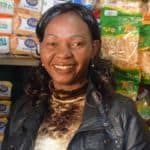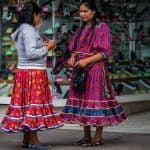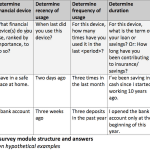Unlocking the Power of Informal Retailers: Mobile Solutions for Commercial and Social Impact in Emerging Markets
More than 61% of the world’s employed population – 2 billion people – earn their livelihoods in the informal sector, and 93% of those are in emerging and developing countries. In sub-Saharan Africa, around 86% of employment is informal, and 80% of household retail is delivered via informal retailers. Despite this prevalence, informal retailers face complex challenges that impede their business growth, financial and income stability, and service quality.
Consumers at the base of the pyramid (BoP) face their own set of challenges, including lack of access to reliable health information, quality products and services. They often struggle to afford everyday essentials, such as food, medicine, hygiene and household products.
The disconnected “grey space” of the informal retail sector also represents significant challenges for the corporate consumer goods and pharma companies who operate in these markets. They are often unable to track data on informal retail sales, regulate quality or access BoP customers for research, marketing or the delivery of social mission goals.
Modernising informal trade is key to unlocking economic welfare for low- and middle-income populations, and improving the lives of the retailers themselves – along with the lives of their families, and the communities in which they operate. Vertical investments aimed at supporting informal retailers have been commonplace, yet limited structural systems change has been achieved. This is because initiatives have failed to tackle the informal retail space horizontally and holistically: addressing the needs of both retailers (supply-side), and consumers (demand-side) while delivering commercial value to corporate manufacturers.
How mobile solutions can address the challenge
Incubated over the last three years by TRANSFORM, a public-private partnership between Unilever and the UK’s Department for International Development and The Bill and Melinda Gates Foundation, Every1Mobile has developed a digital supply and demand platform that takes this holistic approach. The Informal Retailer Platform aims to deliver sustainable, large-scale social and financial impact by building the business capacity and income potential of low-income shopkeepers in the global South via education and access to services. In the process, it will deliver health outcomes to their customers through demand generation, behaviour change interventions and affordable health products – all through the mobile phones in their hands.
Ultimately, this will lead to increased sales and brand loyalty for informal retailers, as well as enabling the delivery of social marketing and boosting the social mission of corporate partners. And thanks to transaction-based revenues from vouchering, online ordering and group buying, aggregated data products and social mission delivery from corporate partners, Every1Mobile’s platform is designed to be commercially sustainable and scalable while being completely free to retailers and consumers alike.
Kenya and Nigeria taking the lead
The Informal Retailer Platform is currently being tested through two parallel and complementary programmes in Kenya and Nigeria.
In Kenya the platform is known as U Join, a mobile-enabled digital platform for low-income shopkeepers (called dukas) in Nairobi. Via U Join, shopkeepers can enroll their customers in a “loyalty club,” through which customers are sent SMS-based e-vouchers for discounted health and hygiene products. Thus far there are 3,850 fast-moving consumer goods (FMCG) shopkeepers registered, interacting with 25,000 consumers, who in turn have redeemed 150,000 e-vouchers. U Join’s sister project, U Afya, is a complimentary digital community of young mothers and mothers-to-be that drives the uptake of healthy behaviours. U Afya’s innovative content and messaging creates awareness about – and drives demand for – health and nutrition products. It also helps change health behaviours, with over 3,000 mothers and mothers-to-be accessing health and hygiene support, information and vouchered products through the platform.
An internal impact evaluation demonstrates that the platforms have increased revenue among participating retailers by up to 25%, along with increasing mothers’ confidence in making healthy choices, and boosting sales of corporate partner products.
In Nigeria, the platform is known as NaijaCare, a mobile-enabled digital platform that offers a range of digital tools and capacity building to help informal patent and proprietary medicine vendors (PPMVs) to drive revenue and service quality and, in turn, improve quality of care and nutrition outcomes for urban, low-income communities.
Due to limited access to health care and health information in Nigeria, PPMVs are often sought after by low-income consumers for their advice on a range of health issues. However, PPMVs are not well-supported in providing quality health care advice, and in many parts of the country, only around 20% have some level of medical training. This often results in inadequate diagnoses, treatments, referrals, health screenings and health promotion – hence the need to develop a solution that would deliver both public health and economic benefits by providing business-focused e-learning courses, as well as expert mentoring. An added benefit of this approach is that it drives sales and loyalty through customer loyalty clubs, and provides online ordering for accredited medicines and FMCG, while driving health outcomes through digital referrals.
The platform is partnering with outside organizations, delivering a tiered accreditation training curriculum and providing job aids for 220 medicine vendors in Lagos on behalf of the Pharmacists Council of Nigeria, as well as facilitating digital client referrals from medicine vendors to Society for Family Health clinics. In the future, it aims to offer further strengthening on the supply side through supply chain management, better end-of-the-line market data, and increased visibility to brands – along with more brand partnerships for sustainability.
Ultimately, the Informal Retailer Platform aims to improve the livelihoods of over 500,000 low-income retailers. In the process, it has set the goal of boosting the financial security of over 2 million of their dependents, while delivering health outcomes to millions of their customers over the coming 10 years.
Visit this website for more information on digital solutions for social change.
Lieze Langford is International Communications Organizer, Abi Gleek is Head of Program Design and Katherine van Wyk is Business Development Manager at Every1Mobile.
Photo courtesy of organization.
- Categories
- Technology



